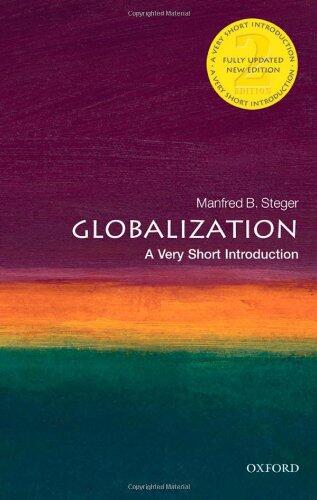
Globalization: A Very Short Introduction
Inga betyg ännu
History
Manga
Format
Pocketbok
Sidor
168
Språk
Engelska
Publicerad
Jun 19, 2003
Förlag
Oxford University Press
ISBN-10
019280359X
ISBN-13
9780192803597
Beskrivning
Manfred B. Steger delves into the intricate world of globalization, offering a concise yet comprehensive overview of its many dimensions. He explores the complexities of this phenomenon, which stretches across economic, cultural, political, and environmental fields. Through engaging and approachable language, Steger breaks down concepts often seen as daunting, making them accessible to readers of various backgrounds.
The narrative unfolds by examining how globalization reshapes societies and influences individual lives in profound ways. Steger draws connections between past events and contemporary trends, illustrating the dynamic nature of global interconnectedness. Readers are invited to consider how local issues can have far-reaching implications, emphasizing the interdependence of nations.
As he navigates through themes of inequality, migration, and cultural exchange, Steger encourages critical thought about the consequences of globalization. He poses essential questions about identity and belonging in an increasingly interconnected world, inviting readers to reflect on their own experiences.
Ultimately, this exploration serves as a valuable resource for anyone seeking to understand the processes that define our modern landscape. Through his keen insights, Steger fosters a greater appreciation for the multifaceted nature of globalization, making it an essential read for those eager to grasp its significance.
The narrative unfolds by examining how globalization reshapes societies and influences individual lives in profound ways. Steger draws connections between past events and contemporary trends, illustrating the dynamic nature of global interconnectedness. Readers are invited to consider how local issues can have far-reaching implications, emphasizing the interdependence of nations.
As he navigates through themes of inequality, migration, and cultural exchange, Steger encourages critical thought about the consequences of globalization. He poses essential questions about identity and belonging in an increasingly interconnected world, inviting readers to reflect on their own experiences.
Ultimately, this exploration serves as a valuable resource for anyone seeking to understand the processes that define our modern landscape. Through his keen insights, Steger fosters a greater appreciation for the multifaceted nature of globalization, making it an essential read for those eager to grasp its significance.
Recensioner
Inga recensioner ännu
Bli den första att recensera denna bok och dela dina tankar
Lägg till första recensionenLäsdagbok
Inga läsloggar hittades
Börja spåra dina läsframsteg för att se loggar här
Lägg till din första läsloggAnteckningar
Inga anteckningar hittades
Börja skriva anteckningar för att se dem här
Lägg till din första anteckningTransaktionslogg
Inga transaktionsloggar hittades
Börja spåra dina boktransaktioner för att se loggar här
Lägg till din första transaktionslogg


















